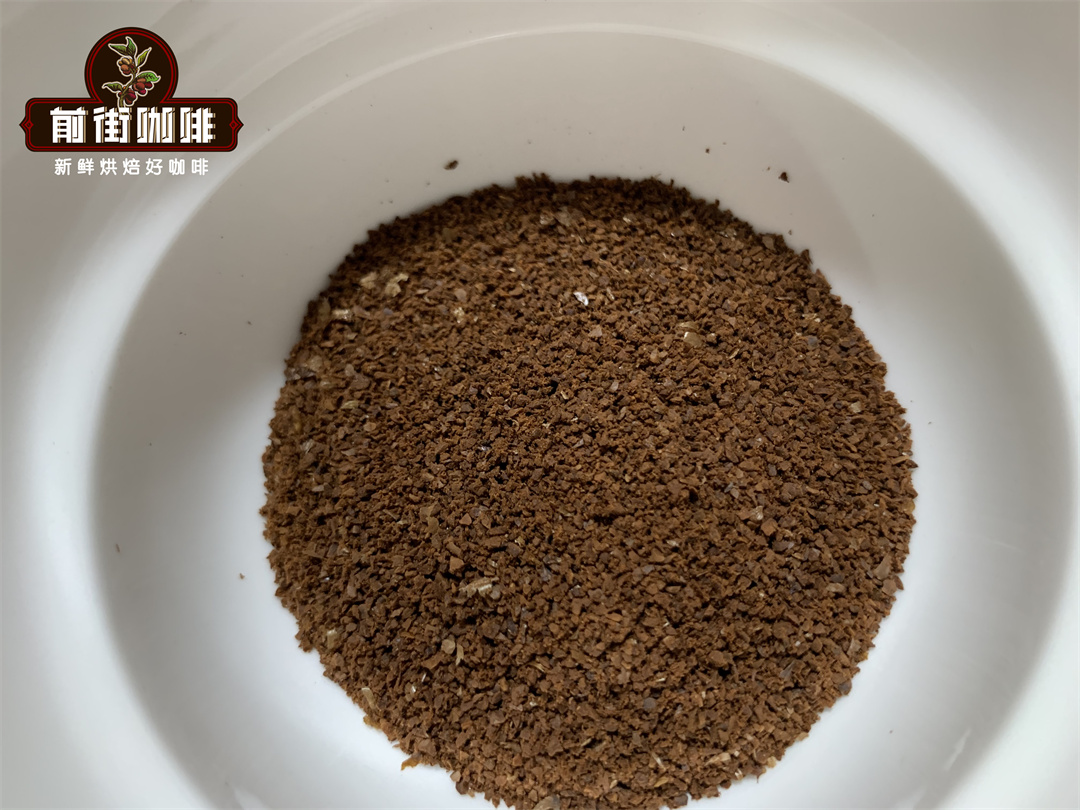Three differences between decaf coffee and regular coffee six benefits of drinking decaf coffee
Many people like to drink coffee and drink an espresso in the morning to wake up. However, if you eat too much caffeine every day, it will put a burden on the body, such as osteoporosis, some people are sensitive to caffeine, and it will also cause symptoms such as rapid heartbeat, palpitation and dizziness. So there is decaffeinated coffee. Let's see whether decaffeinated coffee is good or bad, and what's the difference between decaffeinated coffee and ordinary coffee.
Decaf coffee, also known as Decaf coffee, English decaffeinated coffee, its nutrition is similar to ordinary coffee, but the caffeine content is very low, more than 97% of the caffeine has been removed. In the process of processing coffee beans, carbon dioxide, water or organic solvents are used to remove caffeine, so coffee beans are decaffeinated before they are made into coffee. A Colombian coffee from Front Street Coffee is called low Swiss Water Coffee.
The difference between decaf and regular coffee
1. Caffeine is extremely low.
Decaffeinated coffee is not completely decaffeinated, but more than 97% of its caffeine is removed and the caffeine content is very low. There is usually 3 mg of caffeine per cup, and studies have shown that each cup (180 ml) of decaf has 0-7 mg of caffeine. A normal cup of coffee has 70-140 milligrams of caffeine, 23 times that of decaf.
two。 The fragrance and taste are light, and the color may change.
Decaffeinated coffee goes through the process of decaffeination, the taste and smell of the coffee is lighter, while the color of coffee beans may be different after decaffeinated. Therefore, low-caffeine coffee is a good choice if it is sensitive to the bitterness of general coffee.
3. Less antioxidants and a small amount of nutrients
Decaf coffee, like regular coffee, contains antioxidants such as polyphenols and cinnamic acid (hydrocinnamic acids), but a small part of it is lost in the process of decaffeination. These antioxidants help prevent free radicals from damaging the body's cells, reduce the damage caused by oxidative stress, and prevent chronic diseases, including heart disease, cancer and type 2 diabetes. Decaf also contains a small amount of nutrients. A cup of decaf contains magnesium (2.4% daily intake), potassium (4.8%) and vitamin B3 (2.5%), which can be used as a daily nutritional supplement.
The benefits of drinking decaf
1. Avoid the side effects of caffeine
Regular coffee contains caffeine, which stimulates the central nervous system, helps lift spirits, increases alertness, and reduces fatigue. However, if excessive intake, it will make people uncomfortable, pregnant women and children should also pay special attention to the following picture to understand the effects of caffeine on the body!
two。 Prevention of diabetes mellitus
A study published in 2014 in Diabetes Care found that drinking decaf coffee, like regular coffee, can reduce the risk of type 2 diabetes, and drinking one cup a day can reduce the risk by 7%. The study shows that there are other substances in coffee that can help reduce the risk.
3. Protect the liver
A 2014 study published in the journal Hepatology showed that decaf can reduce liver enzyme levels and protect the liver.
4. Reduce the risk of rectal cancer
Studies have also shown that drinking two or more cups of decaf a day can reduce the risk of rectal cancer by 48%.
5. Reduce the risk of early death
A study published in the Chronicle of Internal Medicine in 2008 showed that decaf reduced the risk of early death, including stroke and heart disease.
6. Prevention of Alzheimer's and Parkinson's disease
Decaf contains chlorogenic acid (chlorogenic acid), and studies have shown that decaf helps protect brain neurons from Alzheimer's and Parkinson's disease. Other studies have shown that caffeine itself helps prevent cognitive impairment and neurodegenerative diseases.
Important Notice :
前街咖啡 FrontStreet Coffee has moved to new addredd:
FrontStreet Coffee Address: 315,Donghua East Road,GuangZhou
Tel:020 38364473
- Prev

Efficacy and function of decaffeinated coffee will decaffeinated coffee affect sleep health
Decaffeinated coffee (DecaffeinatedCoffee) is similar to regular coffee in taste and appearance, but contains little caffeine. There is no evidence that drinking decaffeinated coffee is harmful to a person's health, but it may provide some benefits from coffee. Decaffeinated
- Next

Coffee powder the easiest way to drink coffee beans must be ground into coffee powder before brewing?
Coffee drinkers always say that coffee beans should be ground immediately before making coffee, because once it is ground, it will have more surface area, which oxidizes the delicious things in the coffee. This is just a subtle distinction that only serious coffee snobs will notice, or can anyone notice? After grinding
Related
- What brand of black coffee is the most authentic and delicious? what are the characteristics of the flavor of the authentic Rose Summer Black Coffee?
- Introduction to the principle and characteristics of the correct use of mocha pot A detailed course of mocha pot brewing coffee is described in five steps.
- Which is better, decaf or regular coffee? how is decaf made?
- How much is a bag of four cat coffee?
- How about four Cat Coffee or Nestle Coffee? why is it a cheap scam?
- Which is better, Yunnan four Cats Coffee or Nestle Coffee? How about cat coffee? is it a fake scam? why is it so cheap?
- How about Cat Coffee? what grade is a hoax? which instant coffee tastes better, four Cat Coffee, Nestle Coffee or G7 coffee?
- Process flow chart of coffee making-Starbucks coffee making process what coffee tastes good at Starbucks
- The top ten best coffee beans in the world Rose summer coffee or Tanzanian coffee tastes good
- Yunnan four cat coffee is good to drink?_four cat coffee is a big brand? four cat blue mountain coffee is fake?

